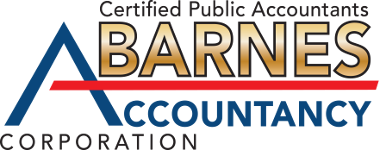Chances are good that you or someone you know and love has lost their job recently. You’ve also probably been touched in some personal way by the actual virus (whether through someone you know, or with whom you keep in touch).
This crisis has a steadily-unfolding nature to it, and is painful, however you are experiencing it.
And no matter your situation, I have some very practical things you should be thinking about right now for the stimulus payments and a few other areas, but first … a word:
Because we’ve been working so hard to serve our Southern California clients through all of the new and various government assistance programs, I haven’t had the time to marinate in all of the various debates, conspiracy theories, and online updates as some others have.
And you know what? For this, I’m grateful.
As tempting as it may be, I urge you: keep your mind as clear and focused as possible during this hour in history.
I’ve often said that the best protection against fear is to not marinate in other people’s panic. But that’s also true with anger (stewing over various conspiratorial and international intrigue), that’s true with jealousy (staring at other peoples’ apparent good fortune in the midst of this pain), and that is also true with denial and complacency (insisting to yourself that this will all end quickly).
Your family, your friends, your vocation and your own soul NEED you to be at the top of your game right now. Don’t waste this time.
Practical Advice For You RIGHT NOW
- Verify your economic stimulus payments. I’ve been writing plenty about these, but to reiterate … The maximum relief payments are $1,200 for single taxpayers, $2,400 for married couples who file jointly, plus $500 for each dependent child who is younger than 17. Income limits apply.
Since the IRS is in charge of delivering these stimulus payments, they’ll use your already-filed 2019 return, your 2018 return, or your Social Security information as a basis.
Also remember this is an advance of a tax credit against our 2020 tax year filing. So if either your 2018 or 2019 tax return shortchanges your ability to receive the full credit now, you’ll be able to get the remainder when you file in 2021.
- Check your retirement funds. And I’m not just talking about market-related balances. If you recently turned 70 ½, you were supposed to take your first Required Minimum Distribution on April 1st … but the CARES Act actually waived that requirement.
In fact, everyone facing an RMD in 2020 is off the hook. This is good news, and will save on your taxes because you WOULD have been paying tax on the RMD that was based on your account’s value at the end of 2019 — when almost everything was worth more.
And, if you are able, the new tax deadline ALSO means that you can make a 2019 tax-deductible contribution to IRA accounts all the way until July 15th (the new tax deadline).
- Estimated tax payment delays. Good news! You don’t need to pay those on April 15th either. Again, the first quarter estimated tax payment is now due on 7/15/20.
Note that this is just a deferred payment. You’ll still have to pay the appropriate amount on that date. Also, your estimated tax amount for the second quarter is still due (for now) by June 15th.
- Offer help. Devastation is everywhere, and you can make tax-deductible gifts … and you might also consider making non-deductible gifts, if you have the means. This is a fantastic opportunity to be a blessing to your Southern California community, and if you are able — PLEASE do so.
Also, though it is small, the CARES Act offers you a new philanthropic tax incentive. You can claim up to $300 given to an IRS-approved charity as an adjustment to your income. This new deduction will be there, whether or not you itemize (previously known as an “above the line” deduction).
- Watch out for new schemes from the crooks. I’ll have more to say about this if need be in the future, but here’s an alert the IRS put out warning all of us how the scammers are trying to come after us, even now.
For any of these things, we are in your corner … and only an email or phone call away.
Warmly,
David Barnes
(714) 541-4338
Barnes Accountancy Corporation
And again, to reiterate my “CRISIS Action Plan” for my Southern California clients:
- Don’t marinate in other people’s panic. Be mindful of your social media consumption.
- Get financially and logistically prepared for the worst.
- Make sure you have some ready, liquid assets, if you are able. (I.e., cash in the bank, and in hand.)
Set aside plans for any big spending until the dust settles — but especially look out for your small business owner friends and vendors.

